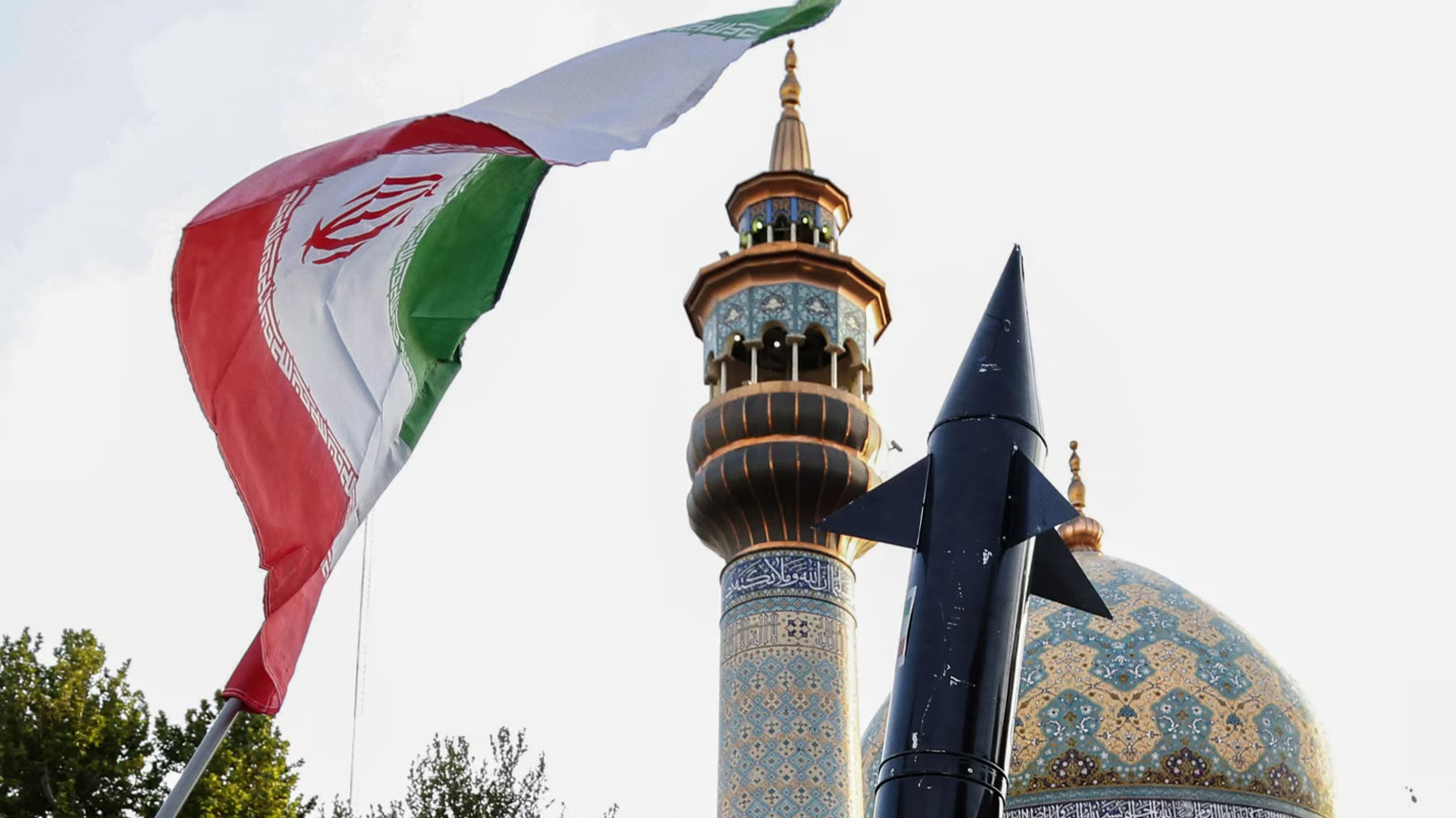U.S. Urges Iraq ‘to Continue to Take Action’ against Militants, after Israel Stunned by Massive Iranian Attack
The vast majority of missiles and drones that targeted Israel were launched from Iran, and their large number was a surprise.

WASHINGTON DC, United States (Kurdistan 24) –Iraqi Prime Minister Mohammed Shia’ al-Sudani is leading a large delegation on a week-long visit to Washington, the first time that he is visiting the U.S. capital.
Read More: U.S. Seeks to Broaden Ties with Iraq, as PM Sudani Makes First Visit to Washington
Briefing the press on Thursday, State Department Deputy Spokesperson Vedant Patel explained that the Biden administration had called on the Baghdad government to do more to establish control over all the armed groups and weapons that are on Iraq’s territory.
The challenge is the extent to which Iran wields influence in Iraq, and Sudani’s options may be limited. Yet the Biden administration long ignored this problem, believing that the extent of Iranian influence in Iraq was not a serious problem.
Indeed, on Oct. 2, some six and a half months ago, U.S. National Security Adviser Jake Sullivan sent an article to print for Foreign Affairs. In the original version, as The New York Times reported, Sullivan expressed his satisfaction with the Biden administration’s approach to the region.
“Although the Middle East remains beset with perennial challenges,” he wrote, “the region is quieter than it has been for decades.”
That was just five days before Hamas’s brutal cross-border assault on Israel, which triggered a war that has now entered its seventh month.
“Mr. Sullivan’s assertions did not age well,” the Times said.
Sudani in Washington
Generally, as Kurdistan 24 understands, Sudani’s visit has gone well, including from a Kurdish perspective, but one wrinkle involves conflicting statements related to Iran’s recent assault on Israel.
U.S. officials have said that when Iran launched its massive attack on Saturday, some weapons targeting Israel were launched from Iraq, as well as from Syria and Yemen.
Read More: US: Some Weapons Fired from Iraq, as it Denounces Iran’s Attack on Israel
However, Sudani later denied that any weapons had been fired at Israel from Iraqi territory.
Asked about that discrepancy, Patel explained, “The vast majority of Iran’s attacks on Israel were launched from Iran,” adding, “We’ve urged the Iraqi Government to continue to take action against militants and weapons that are outside its control.”
Scope of Iranian Attack Stuns Israel
The scope of the Iranian attack may be the most crucial point: the attack was huge. As The New York Times reported on Wednesday, Israel was taken by surprise by the large scale of Tehran’s response to its April 1 assault on the Iranian consulate in Damascus that killed 7 Iranian military officers, including two senior generals of the Islamic Revolutionary Guard Corps (IRGC.)
With that attack, U.S. officials told the Times, “The Israelis had badly miscalculated, thinking that Iran would not react strongly.”
“Even after it became clear that Iran would retaliate, U.S. and Israeli officials initially thought the scale of the response would be fairly limited, before scrambling to revise that assessment again and again,” the Times continued.
Indeed, Israel had become accustomed, almost as a routine matter, to attacking Iranian targets in Syria, whether assassinating Iranian officials, or bombing Iranian weapons sites. Israeli Prime Minister Benjamin Netanyahu courted Russian President Vladimir Putin, believing that he thereby gained Russian acquiescence in such attacks.
Long ago, the Israelis developed the notion that there was a big break between “secular” and “Islamic” elements, so that Russia could not have close relations with Iran,
But since Hamas’s bloody cross-border assault on Oct. 7, that view has been shown to be clearly false, a very serious mistake.
Moscow has sided with Hamas and Iran, which is a major backer of Hamas. Indeed, the British press recently reported that Iranian support for Hamas goes back at least a decade—until 2014—and amounts to at least $250 million.
Although Hamas and Iran both embrace an ideology of extreme Islam, Russia does not. But there is no obstacle whatsoever to Moscow’s support for the both of them and a trilateral alliance among them.
Russian-Iranian Alliance
Indeed, Washington’s highly-regarded Institute for the Study of War (ISW), on Thursday, published an analysis titled, “Why You Can’t Be an Iran Hawk and a Russia Dove.”
“A Russian victory” in Ukraine “is an Iranian victory” in the Middle East, the ISW report began. “Moscow and Tehran have formed a military bloc with the aim of defeating the United States and its allies in the Middle East, Europe, and around the world.”
ISW took the Iranian-Russian alliance back to July 2015, when the Commander of the IRGC Quds Force, Maj. Gen. Qassim Soleimani, traveled to Moscow “to seek help in keeping Bashar al-Assad in power.”
And that is just what happened. A Russian bombing campaign in Syria in support of Assad began soon thereafter, turning the tide in Syria’s civil war and allowing Assad to remain in power.
And some seven years later, with the war in Ukraine, “Russo-Iranian military cooperation has expanded dramatically,” ISW wrote. Iran has supplied Russia with reconnaissance and long-range attack drones, while Russia has reciprocated with military supplies of its own.
Israeli Response to Saturday’s Attack—Iraqi Targets?
Early on Friday, the first reports emerged that Israel had responded to Iran’s attack on Saturday with an attack of its own. It seems a military facility in Isfahan was the main target. Reportedly, the drones fired at Israel came from that base,
In addition, Israeli media reported that areas in Iraq and Syria were also targeted. However, those were initial reports and were rather sketchy.